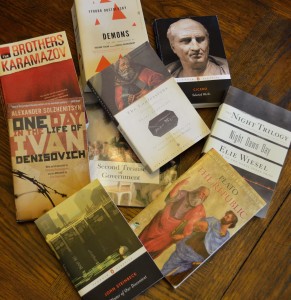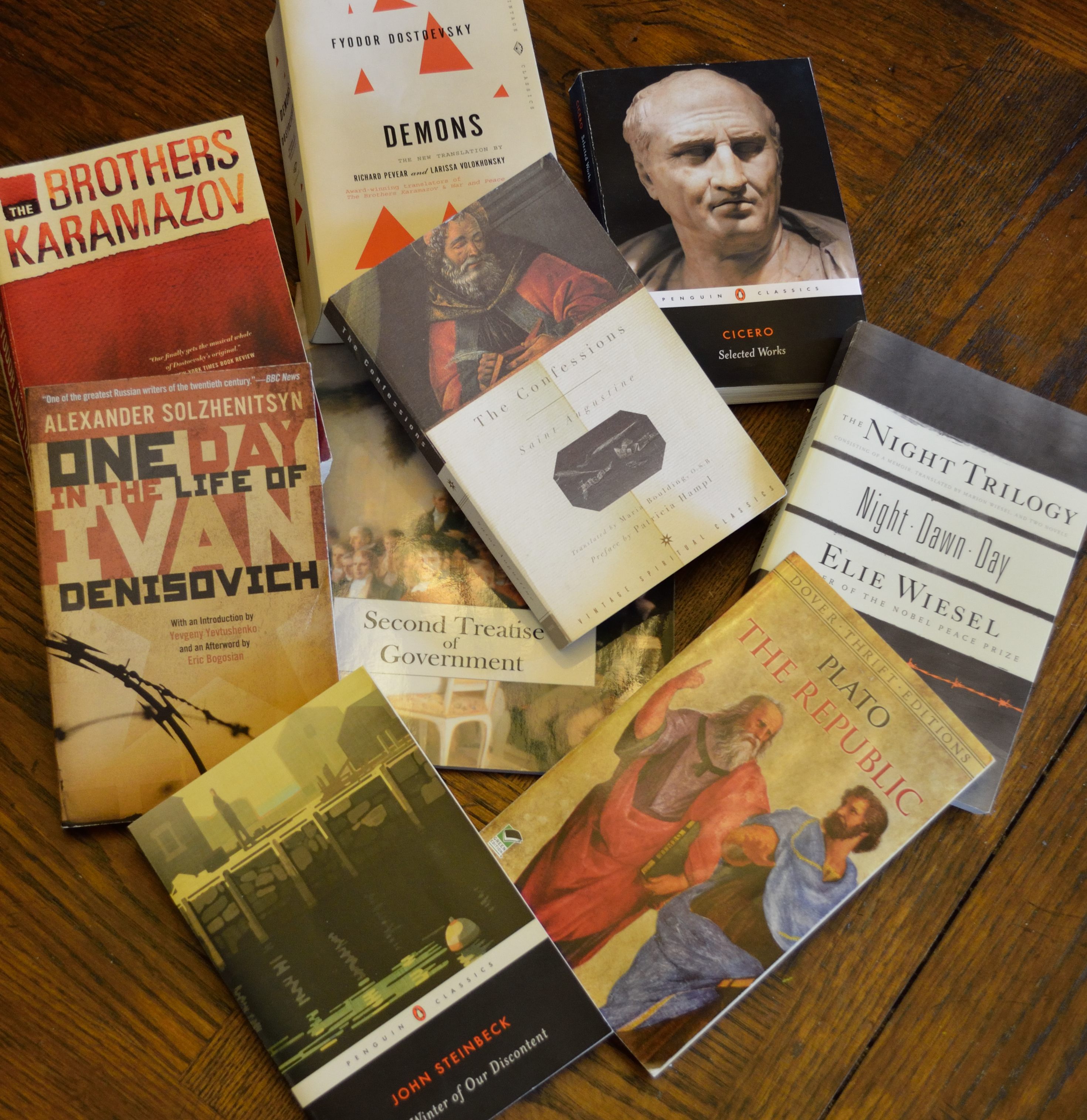By Rachel Dinh
 One of the most defining characteristics of TPA is Humane Letters, a two-hour Socratic class. If you visit a class, you will see a circle of students discussing the book or document in front of them. Students are first introduced to Humane Letters in freshman year, and then take the class each year of high school. In junior high, students may not be accustomed to participating in an active, vigorous discussion. Freshman year can be a big transition as students are urged to find the deeper meaning behind the great works of classical authors while providing evidence for their opinions.
One of the most defining characteristics of TPA is Humane Letters, a two-hour Socratic class. If you visit a class, you will see a circle of students discussing the book or document in front of them. Students are first introduced to Humane Letters in freshman year, and then take the class each year of high school. In junior high, students may not be accustomed to participating in an active, vigorous discussion. Freshman year can be a big transition as students are urged to find the deeper meaning behind the great works of classical authors while providing evidence for their opinions.
Most high school students remember their first Humane Letters discussion, whether they were sitting in pure terror at the thought of raising their hand, or ecstatic that they were finally getting graded on talking in class. Freshman Deanna Diaz says, “It can be extremely difficult for me to participate. But I like Humane Letters because reading the Bible and Proverbs is really interesting.”
Overall, the outlook on Socratic discussions seems positive: “I love talking; you can go a lot deeper than in just regular conversation and get to know your classmates better,” David Smith comments, “the ability to speak freely, as well as having fun teachers, contributes to eagerness to begin class.” As Abbi Harb exclaims: “I have Dr. Kelly, and he’s really fun! I enjoy discussing what we read because I don’t understand it.”
Humane Letters isn’t just about a group of students talking to each other; it’s about building lifelong skills. Lauren Holmes says, “We get to expand our vocabulary and obtain social skills that will help us in the real world.”
Freshman Take HL In Stride
